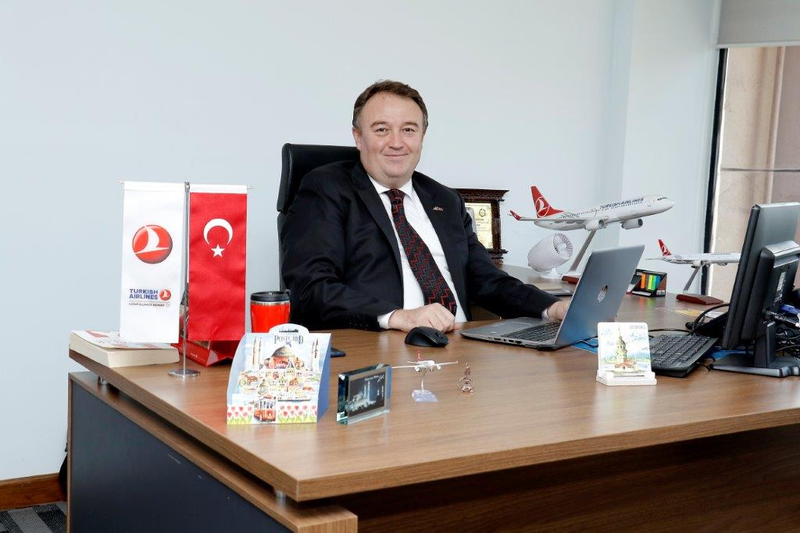

Over the years various international airline companies have started operations in Nepal. Competition has been high with every company trying to outdo the other. Though Turkish Airlines entered the country only in 2013 the company has been able to outshine its competitors. Pukar Bhandari of Nepalnews.com spoke to General Manager of Turkish Airlines in Nepal, Abdullah Tuncer Kececi, about what makes the airline a preferred choice and the recent challenges that the aviation sector is facing. Excerpts:
How would you analyse the current scenario of aviation?
Starting from February last year the coronavirus pandemic started affecting the aviation sector and this has continued till date. In the beginning when nobody knew what would happen next it was frustrating because we could not plan for the future. But now since there are vaccines being developed we are hopeful that the situation will normalise. It is an inherent nature for people to want to travel and since they have not been able to do so for the past one year we believe that when the dust settles down we will have a lot of people travelling across the world.
How is the business at present?
To be honest we are at the moment focusing on how we can sustain. It is all about survival now so that when the conditions improve we will be ready. People are not travelling these days for recreational purposes but there are those flying for other reasons like business. Globally, we used to fly to 325 destinations, however since the pandemic started we are flying only to 210 destinations. We are trying our best to maintain the connectivity. We now have 365 aircraft in our fleet but our long-term goal is to increase that number to 500.
How many flights a week is Turkish Airlines operating from Kathmandu?
We are currently operating two weekly flights from Kathmandu but we have plans to increase the frequency as soon as the travel restrictions imposed by governments in various countries are eased. At present, we fly two times a week directly to Istanbul. We are following all the safety protocols that have been set by the respective governments of the countries we operate in and also the rules framed by the International Air Transport Association. Just to name a few health safety measures apart from thorough cleaning of the aircraft, there are HEPA (High-Efficiency Particulate Air) filters in the aircraft that have a special filtration system that can remove 99.97% of all particles whose diameter is up to 0.3 micron in the air. We also deploy hygiene experts in all flights who are in charge of lavatory disinfection.
Turkish Airlines operates flights to 120 countries. How would you rate the company’s position in Nepal?
We started operations in Nepal in 2013 and I would say that we have been successful here. Since Nepal is a tourism destination we have been promoting Nepal among travellers. Our target is to not only increase the frequency of flights but also increase the number of high-end tourists coming to Nepal. We have entered Nepal with a long-term plan and Kathmandu is a very important destination for us.
What are the challenges that the airline has faced in Nepal so far?
Due to the topography we do face additional challenges here. The other major problem is the cost of aviation turbine fuel in Nepal, which is comparatively higher compared to other destinations. The high operational cost is something that we are trying to minimise at present. Otherwise, I would say that policy-wise we have not faced any problem in Nepal.
What makes Turkish Airlines different from other airline companies?
What differentiates us from other companies is that we adhere to high-quality service. In fact, we have our own standards which we strictly follow. One advantage that we have is that our hub, Istanbul, is a city where the East meets the West. On one side we have Europe and on the other it is Asia. It is an amalgam of cultures so we know the preferences of flyers based on where they are from. We also have a strong network. Turkish Airlines has also earned the ‘Diamond Standard’ status in the health and safety category in an online audit organised by the Airline Passenger Experience Association (APEX) and SimpliFlying. The audit was conducted with 10 categories and 75 touchpoints in mind as answers about health and hygiene precautions were entered with concrete indicators by the participants.